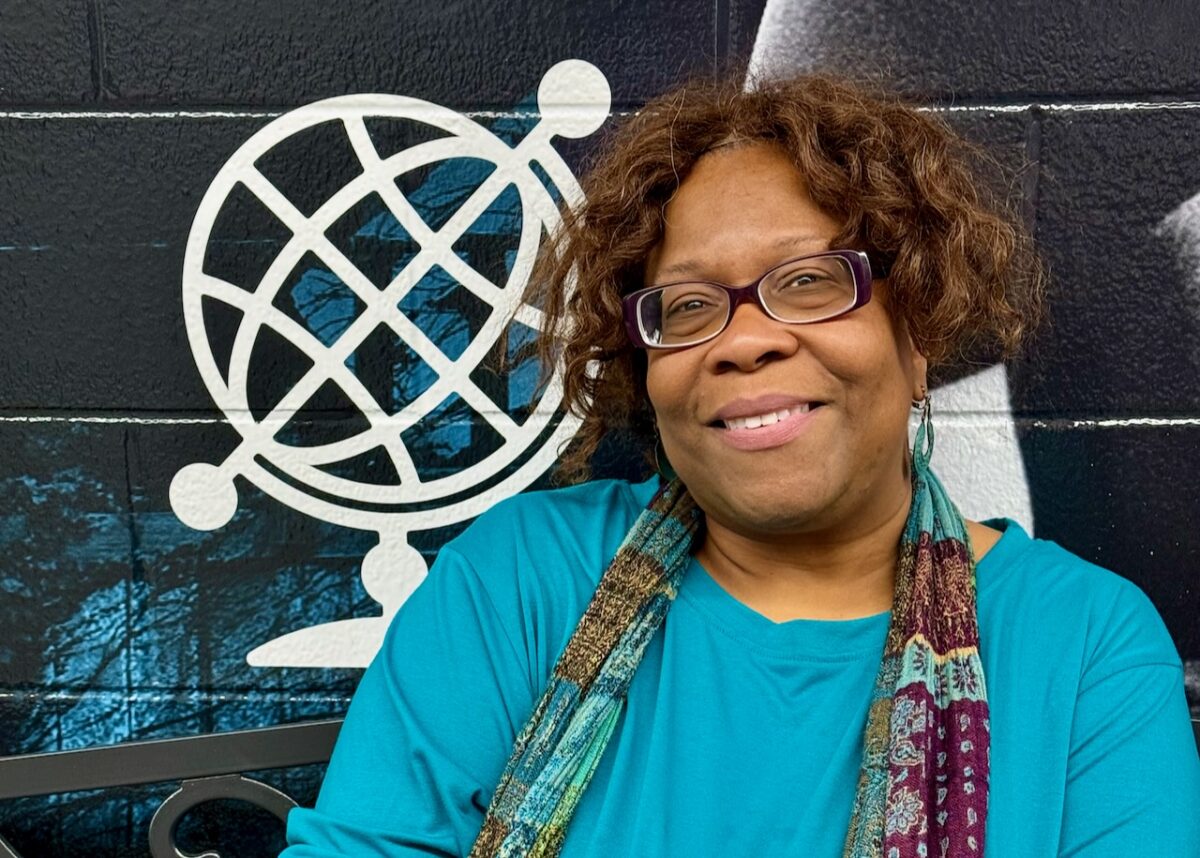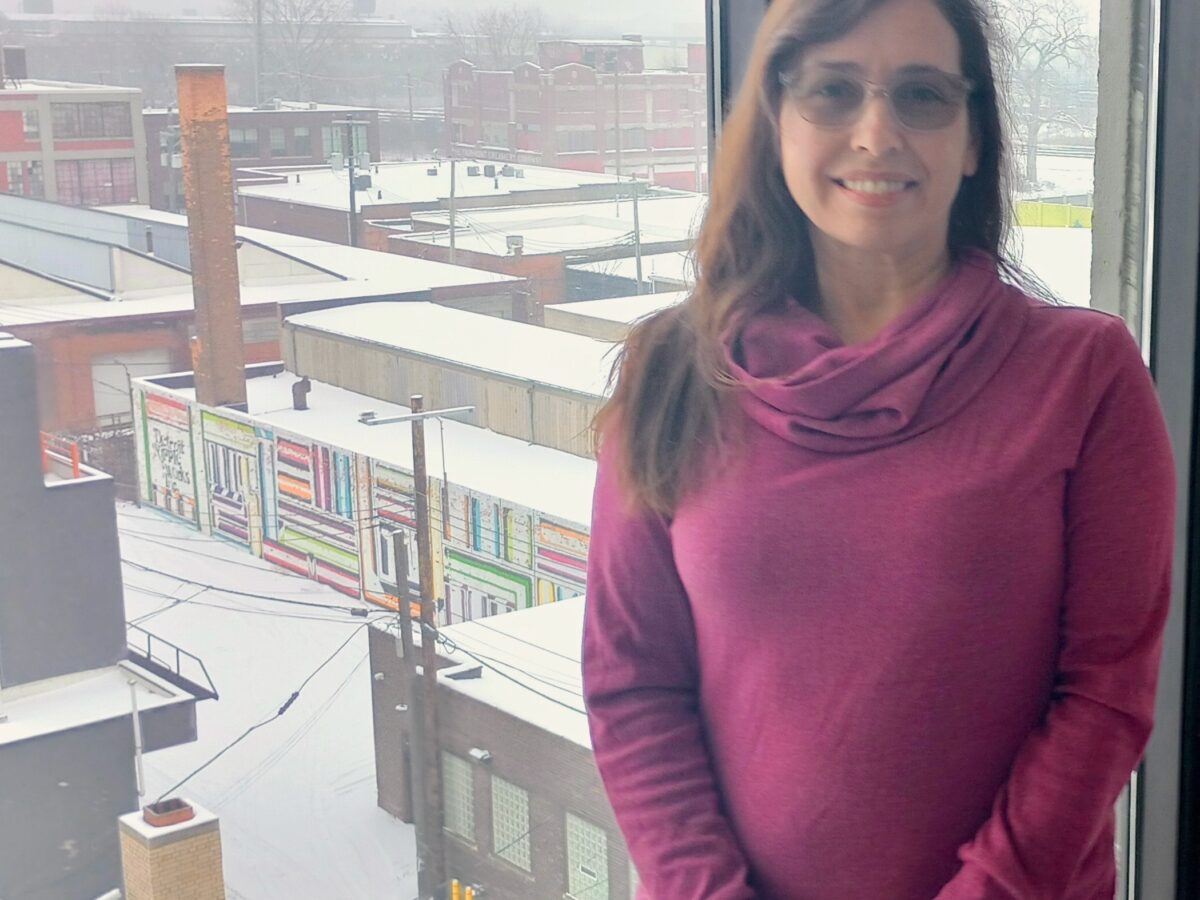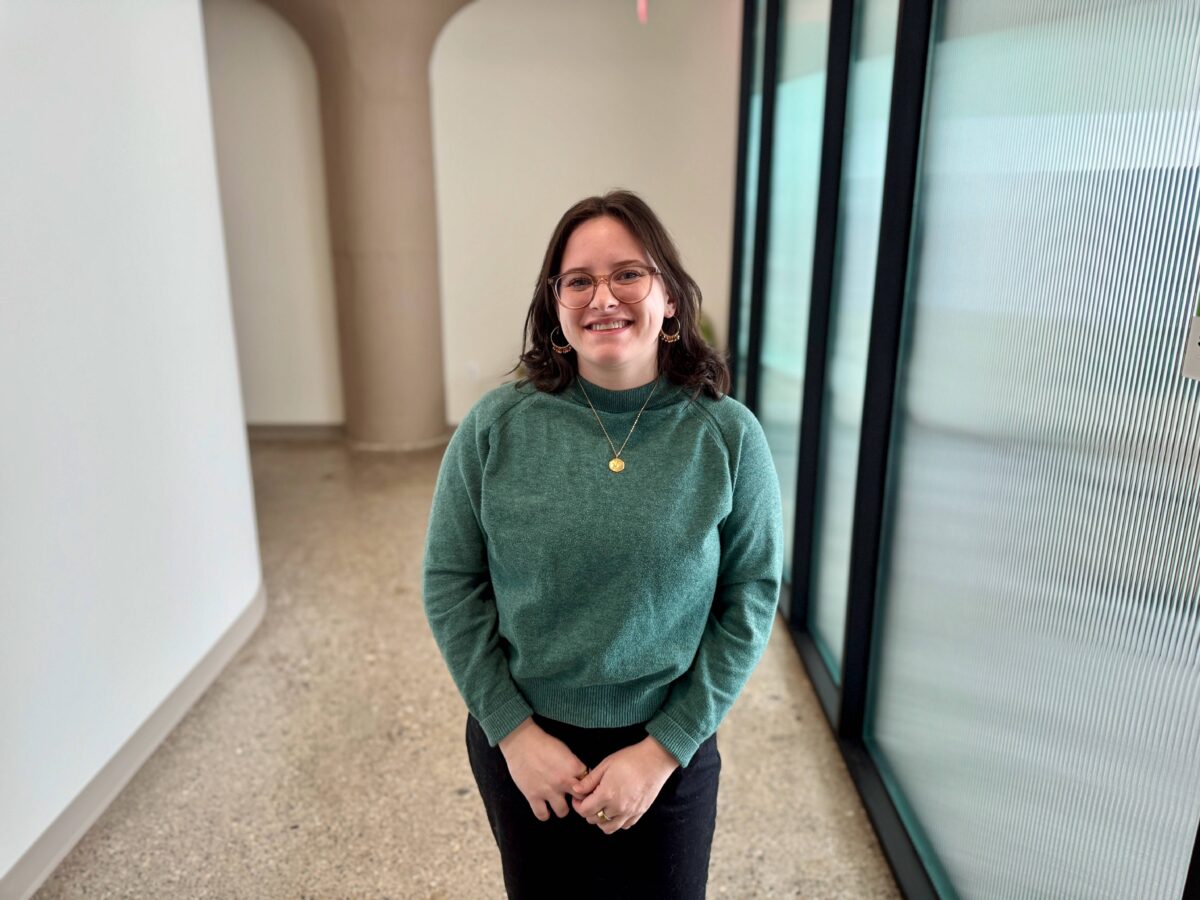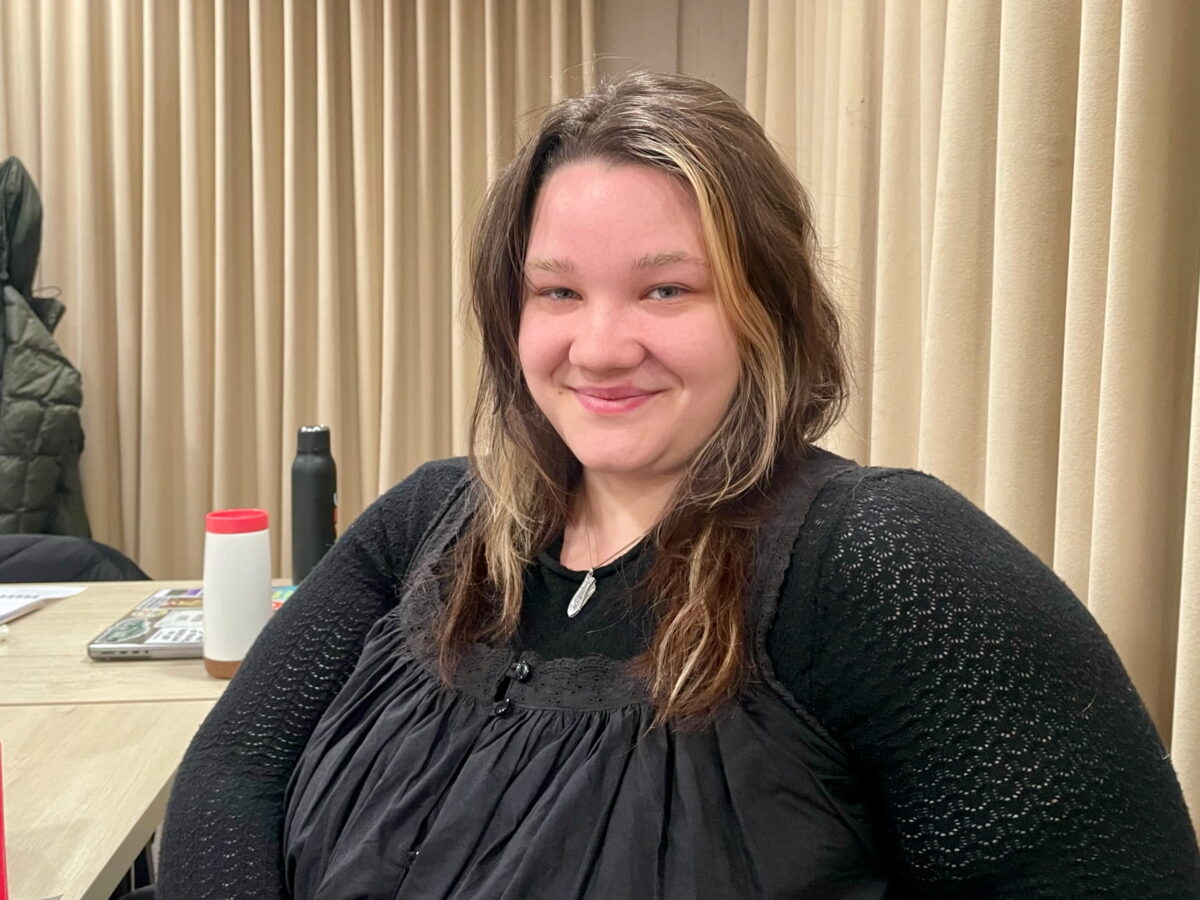Overview:
-Leah Samuel's work spans publications like the Michigan Citizen, Metro Times, and Labor Notes.
-"I do believe that anybody can be a journalist," she says.
-Samuel traces her love of journalism to watching Walter Cronkite at the age of 6.
This story is published as part of Planet Detroit’s 2025 Spring Neighborhood Reporting Lab, supported by The Kresge Foundation, to train community-based writers in profile writing. This year’s participants will focus on highlighting grassroots leaders driving positive change in Metro Detroit.
Leah Samuel is a journalist whose career is defined by a deep commitment to amplifying the voices of marginalized communities. From her early days as a college writer to her role as a mentor and advocate for community-driven journalism, Samuel has consistently sought to humanize the overlooked and challenge the status quo.
Leah, to start, who is Leah Samuel?
I’d say I’m honest, funny, curious, and just about at peace with my imperfections.
So Leah, based on that response, how does who you are come out in your journalism?
It’s not so much in what I write, it’s what I write about. I have been involved in community journalism for much of my career.
I spent my first bit of involvement in journalism while I was in college. I was writing for the South End, which is a Wayne State student newspaper that also covered issues in the Cass Corridor area.
After that, I started writing for the Michigan Citizen, which is a black newspaper that lasted for almost 40 years, and basically covered the African American community in Detroit and issues affecting them as a disenfranchised community.
Working and writing for the Michigan Citizen, you get to know a lot of people in a community, and the other writers as well, of whom are from the community. I was going to school for journalism, but not everybody came from that same path. I thought this was great, because it meant that I could do journalism and be involved with everyday, ordinary people who are from the communities that I understood best — which is what I like about it.
Did you always know you wanted to be a journalist?
Pretty much I always knew. When I was 6 years old, I used to love watching a journalist by the name of Walter Cronkite.
Who is Walter Cronkite?
Walter Cronkite is a journalist who must have died a long time ago, but he came on television every evening, around 6-6:30pm after the local news. He reported on national and international news. As a 6 year old, the way I perceived it was that he was telling everybody what happened today. I started to mimic his behavior and when I came home from school, I’d tell my mother everything from the first bell to the last. At a young age, I loved telling and reporting.
While I don’t remember this, my mother told me later in life that she should’ve always known that I would be a reporter because when I was 2 or 3, I had a habit of just walking up to random strangers and asking them stuff, which a lot of little kids do, but I did it a lot.
So, once you understood that you wanted to do journalism as a career, did you know then what stories you wanted to tell?
No, not always, not immediately. Originally, my goals for being a journalist were to do what everyone else did, which was to work for a daily paper or TV station, and eventually move on to something bigger. Most people in journalism have a career trajectory that’s primarily at large media entities. I ended up doing a lot of work with smaller media, very niche media. For example, the Michigan Citizen.
I also worked at the Metro Times for a couple of years, where I was an investigative reporter. I then went on to write for Labor Notes, which was about a labor education research project that had been around since 1977. They covered union and worker issues. They covered how unions interact with management, but also how workers were being treated by the unions in which they were members.
This experience provided a very thorough education and yet it was a small publication with a close knit staff and community workers. I loved the idea of being involved with communities of people that didn’t always get the big headlines.
After that, I was in Chicago for a bit, doing investigative reporting for the Chicago Reporter. The Chicago Reporter was a magazine covering race and poverty.
I often say that I cover women, children, workers, and people who are disenfranchised. In some respects, that can mean all of us. We’ve all fallen into some group that is not quite getting what it needs. If people remembered that, we would be a lot less inclined to be discriminatory, or mistreat each other. Seeing the commonality between ourselves and the others around us is very important. I believe working on doing these kinds of stories in smaller newspapers and smaller media outlets gave me a chance to humanize a lot of people who aren’t often humanized in the larger media outlets.
Some years ago, I worked at a nonprofit in Pittsburgh that covered social justice issues. They were like an umbrella organization for many groups within the city that worked on social justice issues of all kinds and they all came together under this one place. They had a community newspaper and the writers were people from around the community. They were auto workers, professors, high school students, single moms who received public assistance, everybody. My job as the editor was to help people who weren’t necessarily professional writers to communicate their ideas.
MORE FROM THE NEIGHBORHOOD REPORTING LAB
A Detroiter teaches Mandarin Chinese. A love of learning fuels her journey.
Carissa Welton, a foreign language teacher at Detroit Waldorf School, is spearheading a new program for students to learn Mandarin Chinese. Meet Planet Detroit’s 2025 Neighborhood Reporters in this Q&A series, written by Neighborhood Reporters.
Environmental justice starts at home, says Shayla Zimmerman. A Detroit flood started her career trajectory.
Shayla Zimmerman, environmental advocate since 15, focuses on community organizing and nonprofit empowerment. Meet Planet Detroit’s 2025 Neighborhood Reporters in this Q&A series, written by Neighborhood Reporters.
Larissa Diem changed careers and moved to Detroit. She has a new spiritual home too.
Larissa Diem transitioned from a fashion major to an HR role at a hospital, all while sharing her creative insights through zines and her newsletter, “Goose Watch.” Meet Planet Detroit’s 2025 Neighborhood Reporters in this Q&A series, written by Neighborhood Reporters.
Does this previous experience compare to your experience with Planet Detroit’s Neighborhood Reporting Lab?
Yes, absolutely.
I’m involved in the Neighborhood Reporting Lab because I have experience working with writers who didn’t start off as writers. Writers who weren’t necessarily trained to do journalism. I do believe that anybody can write. I do believe that anybody can be a journalist. I do believe that we all have something to say, and we all have the capacity to say it.
If people are willing to talk about who they are and what they are going through, I believe that I am lucky that they’re willing to talk to me about it. It was very fulfilling to work with people who hadn’t really written before. There are varying degrees of ability and confidence, but I believe anyone can write and be a journalist. It’s about finding your language and voice.
Have you ever reported on a story where you had one perception at the beginning of the story and by the end of your reporting on the matter, your position changed? And if so, do you mind sharing what it was?
Definitely. It’s made me more community-oriented and activist-oriented, especially in understanding who benefits from and pays for policies. My work on environmental issues, particularly environmental racism, has highlighted the importance of understanding how policy decisions affect people’s lives and health.
When I was writing at the Metro Times, I was writing about incinerators, and in what communities they were being placed and why. I learned that people were suffering, illegal dumping was taking place. It was fascinating to learn about environmental racism.
Most recently, I was a contributing writer at a magazine called Harvard Public Health. Its slogan is: “Exploring what works, what doesn’t and why.” One of the ideals this magazine embraces is the idea of the environment as a public health issue. It helps readers understand that what you put in the water and what’s put in the air and what exists in our environment, all have an impact on the public’s health and the health of each individual.
How has your career shaped who you are today?
I do find a big chunk of my identity in being a journalist. It’s an important badge that I wear because of what I think journalists are meant to do, or should be doing. Which is to speak truth to power, expose wrongdoing and malfeasance, as it’s often referred to; and also give a voice to people who often don’t have a voice, who often don’t have a means to communicate to larger society what is happening to them. If this is what a journalist does, then this is what I want to continue to do.
What do you hope the Planet Detroit Neighborhood Reporting Lab will achieve?
I would hope that the people that we’re working with right now would go back into their communities and do more in terms of documenting what’s happening in their communities, communicating what’s happening to their communities, and then finding solutions for what’s happening in their communities.
Anyone can do that. I don’t think that you have to have a journalism degree to do it.
Yes, finding solutions is a big part of it, especially now. Sometimes we don’t necessarily get into what the possibilities are in terms of resolving those kinds of problems, but with community journalism, problem solving can happen and be orchestrated by the people most impacted.
Any final thoughts you’d like to share?
Yes, I want to reiterate that anyone can be a writer and a journalist. It’s about storytelling and reporting on what’s happening in your life. Don’t be afraid to tell your stories. We write in journals and report what’s going on in our lives to ourselves. This is reporting. That’s all journalism is. It’s storytelling. It’s telling people what’s happening. You don’t necessarily need a specialized credential to do that.





